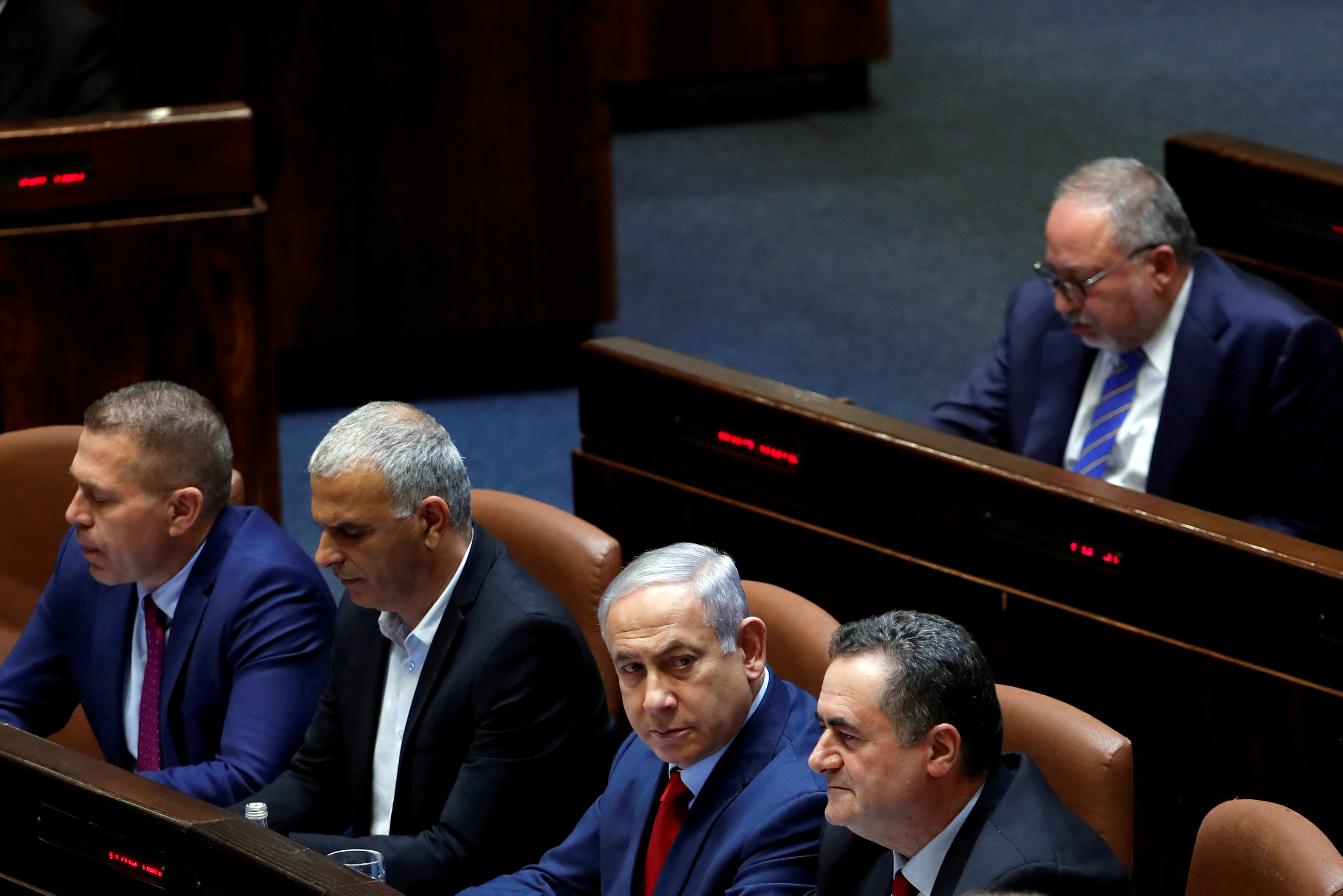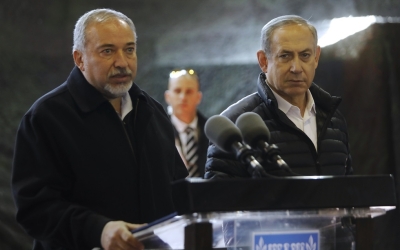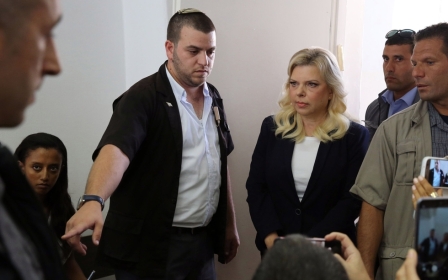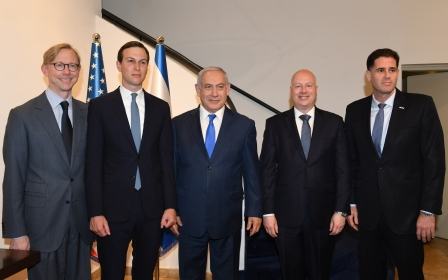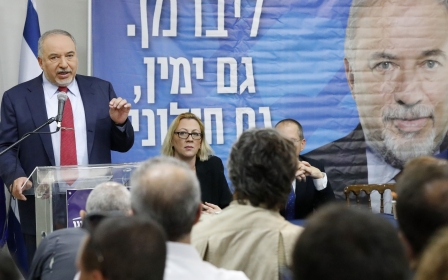'I'm just tired': Israelis rue election re-run and roiling political crisis
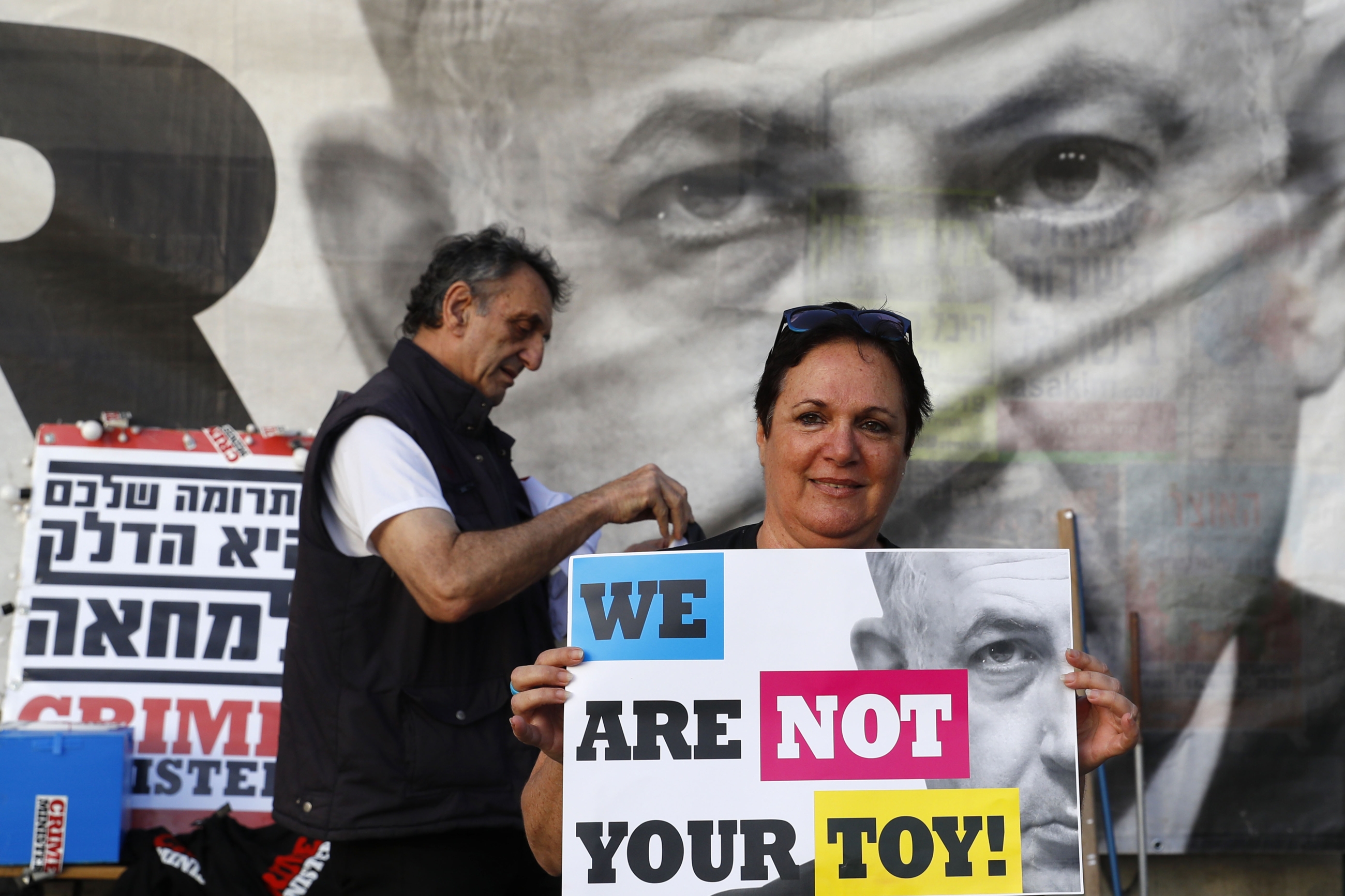
If you ask Rika Reuveni, the outcome was a foregone conclusion.
"For a month I'’ve been saying we're heading for a new election, and here we are," the 80-year-old retired nurse from Rosh Haayin tells Middle East Eye.
In the hours following Israel's 9 April election, Prime Minister Benjamin Netanyahu declared victory, with his path apparently clear to forming a right-wing government.
But this week his grand designs fell apart, when Netanyahu's former defence minister, Avigdor Lieberman, refused to enter a coalition.
Now Israelis are facing fresh polls on 17 September, and a roiling political crisis that seems far from a resolution.
New MEE newsletter: Jerusalem Dispatch
Sign up to get the latest insights and analysis on Israel-Palestine, alongside Turkey Unpacked and other MEE newsletters
It's not that different from North Korea. The public is at its most apathetic. It has no power
- Maayan Amran, social activist
The country's present mood seems less impassioned than during the days leading up to the April elections. Indifference is creeping in, along with a widespread sense that changing the situation is impossible.
Nonetheless, most people are worried. They are staying abreast of developments and are frightened of what is in store.
"I can't trust a single word that comes out of Netanyahu's mouth, and that infuriates me. He just gets more and more paranoid. He spews hate at escalating levels until it's almost like he's sending people out to commit violence," says Maayan Amran, a 36-year-old social activist from Tel Aviv.
"Not that Lieberman is naive: he simply understood that if he went to the polls tomorrow, he would do better than last time. But if Netanyahu couldn't form a coalition then he should say so, and not drag us all back for another round of elections."
Israel’s political crisis: A timeline
+ Show - Hide14 November 2018
Defence Minister Avigdor Lieberman withdraws from Israel’s governing coalition in protest against ceasefire talks with Hamas, leaving Benjamin Netanyahu’s government with only a slight majority in parliament.
19 November 2018
After emergency talks, Netanyahu avoids a snap election when far-right Education Minister Naftali Bennett drops his threat to collapse the coalition if he is not made defence minister.
2 December 2018
Israeli police recommend corruption charges against Netanyahu for allegedly offering telecoms company Bezeg better contracts in exchange for positive coverage in a news website under the same owner.
24 December 2018
After resisting pressure and following weeks of infighting in his cabinet, especially over a military exemption bill affecting ultra-Orthodox Jews, Netanyahu calls a snap election for April 2019.
21 February 2019
Netanyahu’s strongest opponents, including three former military chiefs, launch the Blue and White political alliance aimed at ending the prime minister’s decade in power. The two strongest candidates, Benny Gantz and Yair Lapid, agree to rotate the role of premier if they win.
9 April 2019
Netanyahu wins a record fifth term as prime minister. Though Blue and White equalled the number of seats as his Likud party, the number of seats won by Netanyahu’s right-wing allies put him in the strongest position to form a government.
25 May 2019
Thousands of Israelis from all political parties protest against Netanyahu and suggestions his party will fight to grant him immunity against corruption charges
27 May 2019
Netanyahu vows to build a coalition despite his failure to secure an agreement more than a month after the election and with only 48 hours until the deadline to form a government passes. Lieberman refuses Netanyahu’s request to join the coalition.
29 May 2019
Netanyahu misses his deadline to form a coalition and the Israeli parliament votes for new elections on 17 September 2019.
In Amran's view, Netanyahu's insistence on putting the country through new elections rather than risk losing power proves Israel is inching closer to becoming a dictatorship every day.
"It's not that different from North Korea. The public is at its most apathetic. It has no power," she says.
As a young woman engaged in social activism for over 10 years, Amran feels completely disheartened. She says the impression that Israel is becoming a totalitarian state is creating despair.
"I'm always weighing options to go live abroad for a few years. In another few years I don't think I'll be able to go on living here if things continue this way," she says.
"It's just so painful. After being on the barricades for a few years, I'm just tired."
'We are still a democracy'
Despite the despair and suspicion over another round of voting that could eventually produce the same result, many people believe that voters still have the power to change reality.
"We are still a democracy, despite Bibi's efforts to change that," says filmmaker Aviya Einfeld, using a common nickname for Netanyahu.
"What matters is whether the people understand that their freedom is at risk, and whether they are ready to stand up and do something, make sacrifices, for it."
Einfield, 31, cites France's gilets jaunes (yellow vests) protest movement as an example of how people in other countries have pushed against the political status quo and forced change. Israelis, he notes, are far from turning to such lengths.
"Here it looks like people are slowly losing their passion for freedom and are ready to accept a lot of things and to suffer," he says. "It seems we aren't ready to go and fight for our freedom, and that's the most frightening of all."
A lot of Israelis admire Netanyahu and believe that his intentions are pure.
"I really feel sorry for Bibi, because anyone who takes action gets whacked. The guys who aren't doing anything, they criticise all the time," says Reuveni.
Reuveni voted for Gesher, a party led by Orly Levy-Abekasis that failed to be elected to Israel's parliament, the Knesset, in April. But her husband voted Likud. For him, there is no worthy alternative to Benjamin Netanyahu.
His wife tends to agree but still thinks that, after so many years, it's time for a change. "After three administrations, it's enough. They should have passed a law on term limits," she says.
Many people argue that it is the electoral system that has created the current dilemma.
Danny Zehavi, a 55-year-old accountant in a telecommunications company, notes that more than 70 percent of Israelis voted for the two largest parties, Netanyahu's Likud and his challenger Benny Gantz's Blue and White.
But rather than forming a unity government, Zehavi believes, Netanyahu is refusing to partner with Gantz because it would mean he'd be unable to sidestep corruption charges by passing an immunity bill.
"Bibi won't agree to a unity government because then maybe he wouldn't be the prime minister, meaning he wouldn't have immunity. He might even go to jail," Zehavi says. "He wants to remain prime minister until the end of his life, and any method is acceptable."
Electoral uncertainty
Much of the electorate is split between criticism of Netanyahu for pushing through new elections and fury at Lieberman for prompting him to do so.
But many Israelis are also unsure of how to vote this time around, and even see new opportunities.
"In the last election, I voted Labor. I was hesitating between Labor and Meretz, and I saw the low projections for Labor and decided to vote for MKs [members of the Knesset, or parliament] I really like and admire," says Einfeld.
"I saw how Blue and White was swallowing up all the left-wing votes, and I was afraid that they would join with Bibi. But the whole political picture has completely shifted since then, and today it seems barely connected to reality.
"I really hope that Meretz and Labor join forces, but there's a chance I'll vote Blue and White. I haven't ruled it out. I'll vote for them if I feel that they are a serious alternative to Bibi."
Meanwhile, the first polls have been released.
Lieberman's political manoeuvring and coalition demolition appears to have worked in his favour, with his Yisrael Beiteinu party on course to win eight seats, up from five.
"In the last elections I voted Blue and White. In the next one, I'm voting either Blue and White or Lieberman," says Zehavi.
"Finally a politician who doesn't cave, he walks his talk right to the end. I also agree with his opinions - that we shouldn't have a state governed by strict Jewish religious law. And that we should have a right-wing government, but one that's rational."
Middle East Eye delivers independent and unrivalled coverage and analysis of the Middle East, North Africa and beyond. To learn more about republishing this content and the associated fees, please fill out this form. More about MEE can be found here.


